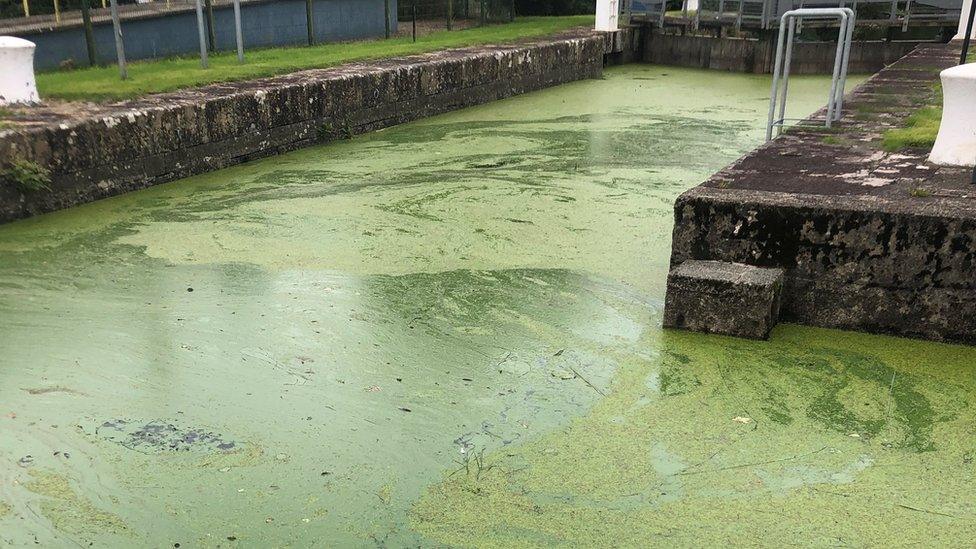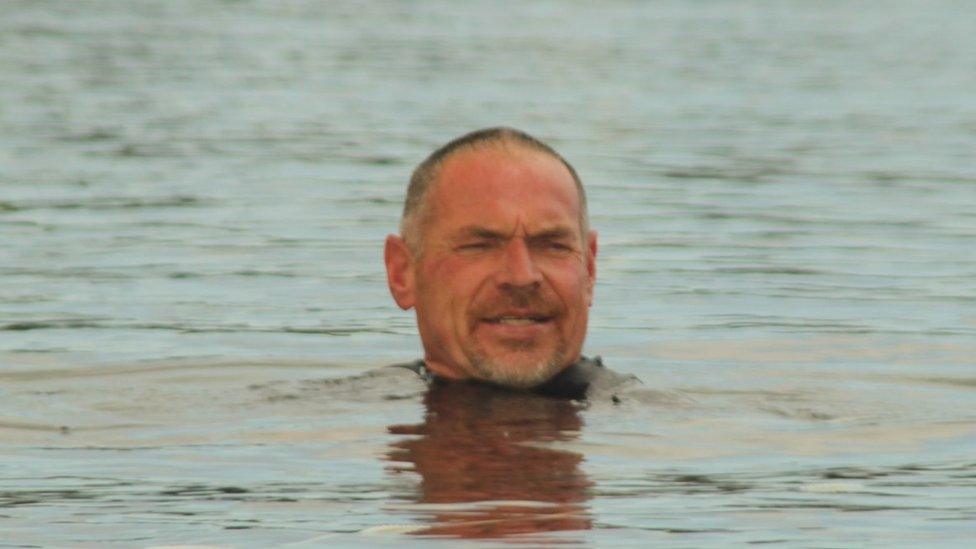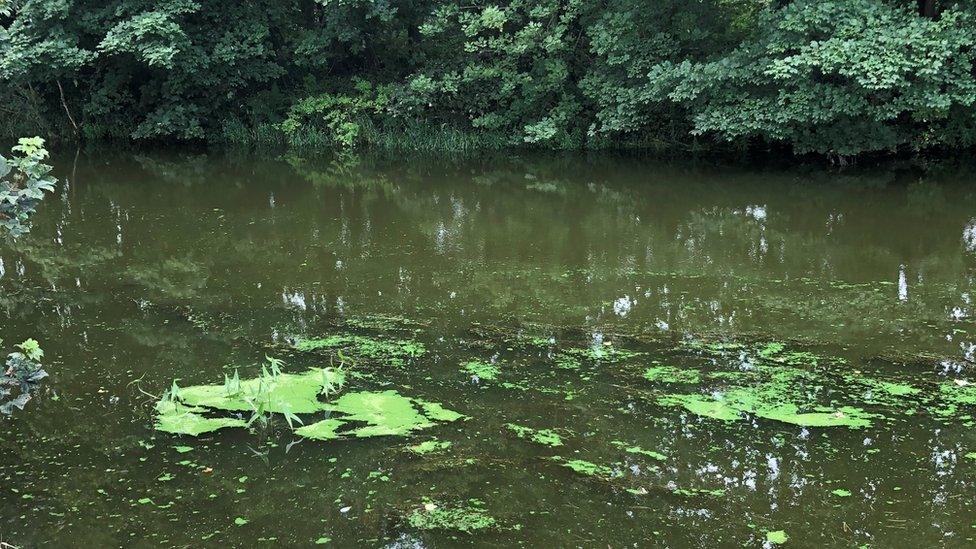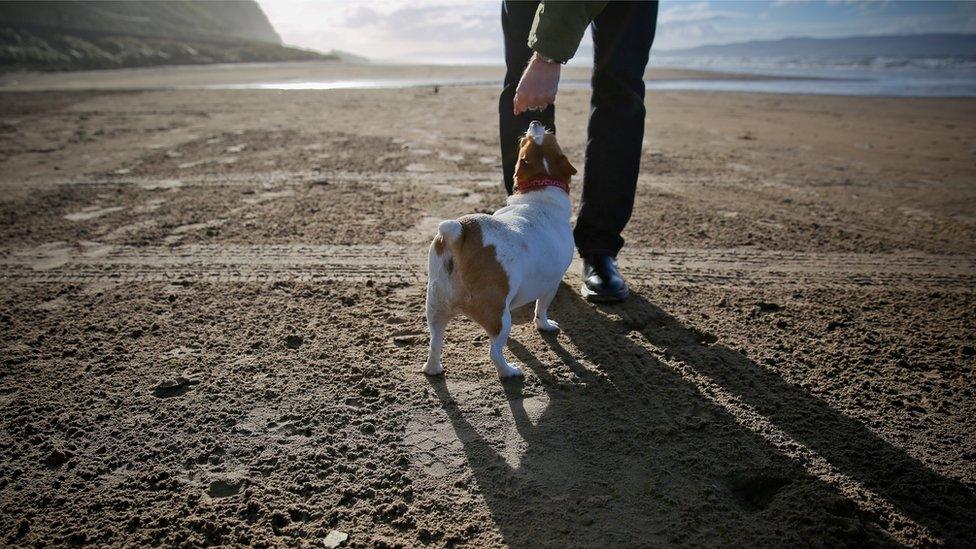Coleraine watersports centre closes due to blue-green algae
- Published

Blue-green algae in the River Bann close to the Cranagh Activity Centre
A watersports centre in County Londonderry has had to permanently close as a result of toxic blue-green algae in the River Bann, its owner has said.
Rob Skelly said the Cranagh Activity Centre, which opened in Coleraine in 2015, has become unsustainable.
Blue-green algae has been detected at a number of sites across Northern Ireland this summer.
It can cause illness in humans and is particularly dangerous for pets.
"The river has been my life," Mr Skelly told BBC Radio Ulster's Good Morning Ulster programme.
"My children grew up in the river and we've had over a quarter of a million customers over the years - its just absolutely devastating."
Blue-green algae is not actually an alga but rather a type of bacteria called cyanobacteria.
Scientists from the Agri-Food and Biosciences Institute have been working with the Department of Agriculture, Environment and Rural Affairs (Daera), assisting with modelling to predict how tidal flows will affect the algal blooms.

Rob Skelly says the River Bann has been his life
Mr Skelly said the centre had to close for two weeks in July, costing thousands in lost custom.
"The algae seemed to clear and we managed to get open again, then last Sunday it appeared again overnight and the river was absolutely full of it.
"You couldn't put people into the water," he added.
Mr Skelly said 10 staff who work at the centre "received their P45s this week".
'Devastating'
The Social Democratic and Labour Party's (SDLP) Cara Hunter said the activity centre was a well-loved and very popular business.
"It's devastating for the local area," she said.
"Not only is [the algae] negatively impacting the environment, but now it's people's livelihoods - it's a disgrace."
Ms Hunter said businesses which rely on the waterways have been "left in the dark" and blamed the lack of a functioning Stormont executive.

'You couldn't put people into the water'
Pollution and rising temperatures create the right environment for an algal bloom to happen.
Agricultural runoff and wastewater discharge which has been washed from Lough Neagh down the River Bann is believed to be responsible for algal blooms.
Speaking on BBC Radio Ulster's Evening Extra programme, Dr Joerg Arnscheidt, a freshwater scientist from Ulster University, said these events are "the new normal as temperatures rise."
He added that "the quality of the water at the River Bann is largely determined by runoff", adding: "We have to get to grips with the nutrients that run into the water."
Swimmers were advised not to swim at several Northern Ireland beaches during the summer due to concerns about blue-green algae.
NI Water said in a statement that management of the lough is a multi-agency responsibility and there is a complex range of pressures across multiple sectors impacting on the water quality.
It added that it does not pump raw sewage into Lough Neagh but said that during heavy rainfall "diluted waste water may be discharged" into the lough from a sewer overflow system.
In a statement, the company described itself as "custodians of the environment" and said it was committed to providing safe wastewater services for its customers.
"NI Water, in conjunction with Northern Ireland Environment Agency, have a prioritised approach to capital investment to ensure those assets causing the most impact to public health and/or the environment are upgraded first," it said.
Related topics
- Published6 July 2023

- Published9 July 2023
